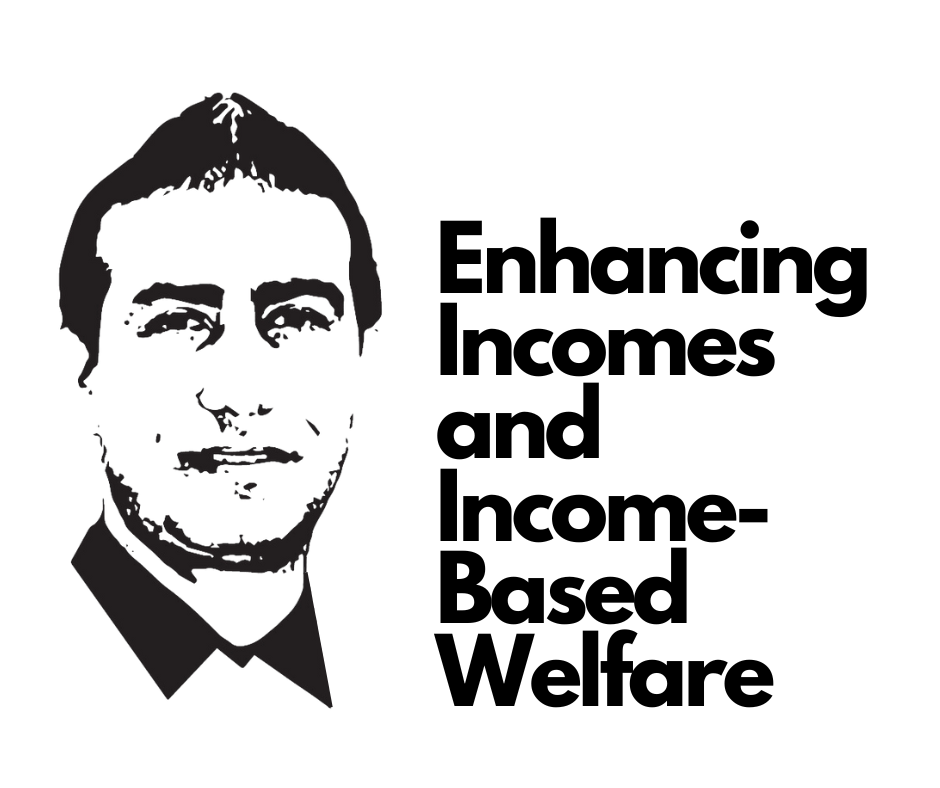Incomes play a pivotal role in determining the standard of living and overall well-being of individuals and societies. Adequate income levels contribute to socioeconomic stability, poverty reduction, and the overall prosperity of nations. Recognizing the importance of incomes, governments and policymakers worldwide are constantly seeking ways to improve and enhance incomes, thereby fostering income-based welfare. This article delves into the concept of income, explores various strategies to improve incomes, and examines the relationship between income and welfare in a broader context.
Understanding Income
Income refers to the money or financial resources an individual or household receives from various sources such as employment, investments, business ventures, or government transfers. It serves as a primary means of meeting basic needs, pursuing personal aspirations, and participating in economic activities. However, income levels are often subject to various socio-economic factors, including employment opportunities, skills, education, and societal structures, which can result in income disparities.
Improving Incomes
- Enhancing Education and Skills: Education and skills development play a pivotal role in increasing employability and earning potential. Governments should invest in education and vocational training programs to equip individuals with the necessary skills for better job prospects and income growth. Upskilling and reskilling initiatives can bridge the skills gap and ensure workers remain competitive in an ever-evolving job market.
- Promoting Entrepreneurship: Encouraging entrepreneurship can provide individuals with opportunities to generate income through self-employment and small business ventures. Governments can facilitate entrepreneurship by offering financial assistance, streamlined regulatory frameworks, and business development support. Promoting innovation and fostering a culture of entrepreneurship can empower individuals to create their own income streams.
- Labor Market Policies: Governments can implement labor market policies that ensure fair wages, protect workers’ rights, and create a conducive environment for income growth. This can include minimum wage laws, labor market regulations, and initiatives to promote decent work conditions. Balancing flexibility and worker protections can foster a healthy labor market that supports income improvement.
- Infrastructure Development: Investing in infrastructure projects stimulates economic growth and job creation, leading to increased incomes. Developing transportation networks, energy systems, and digital infrastructure can attract investments, create employment opportunities, and boost productivity, ultimately raising income levels across various sectors.
- Equal Pay and Gender Equality: Gender pay gaps persist in many societies, impeding income growth and perpetuating inequality. Promoting equal pay for equal work and addressing gender biases in the workplace can narrow income disparities and contribute to overall income improvement. Policies that encourage gender equality and eliminate discriminatory practices are essential in fostering inclusive income-based welfare.
Income-Based Welfare
Income-based welfare focuses on ensuring the well-being and social security of individuals and households based on their income levels. It encompasses various social protection programs and policies aimed at reducing poverty, addressing income inequalities, and promoting social inclusivity. The following measures contribute to income-based welfare:
- Social Safety Nets: Governments can establish comprehensive social safety net programs that provide financial assistance and support to individuals and families with low incomes. These programs include unemployment benefits, cash transfers, housing subsidies, and healthcare coverage. Such safety nets alleviate the immediate financial burdens, enabling individuals to meet basic needs and invest in their long-term well-being.
- Progressive Taxation: Implementing progressive taxation systems where higher-income earners contribute a larger share of their income can generate revenue for income-based welfare programs. This ensures a fairer distribution of wealth and allows governments to allocate resources to social programs that benefit low-income individuals and communities.
- Universal Basic Income (UBI): UBI is an innovative approach to income-based welfare that proposes providing a guaranteed income to all citizens, regardless of their employment status. This ensures a minimum level of income security and acts as a catalyst for economic growth, reducing poverty and inequality. Pilot projects and research studies on UBI have shown promising results, igniting debates on its feasibility and potential impact.
- Access to Quality Healthcare and Education: Income-based welfare should encompass affordable and accessible healthcare and education services. Ensuring universal healthcare coverage and providing quality education to all individuals, regardless of their income, can break the cycle of poverty and create opportunities for upward mobility.
Improving incomes and establishing income-based welfare systems are vital for creating equitable and prosperous societies. Governments, in collaboration with civil society, must prioritize strategies that enhance education, skills development, entrepreneurship, and labor market policies to boost incomes. Concurrently, income-based welfare measures such as social safety nets, progressive taxation, and initiatives like universal basic income can provide a safety net for those with lower incomes and foster inclusive economic growth. By pursuing these strategies, societies can aspire to a future where income disparities are minimized, and the overall well-being of individuals is prioritized, leading to sustainable economic prosperity.





1 Comment
Global Renaissance: Dr. Bilal Ahmad Bhat's 28COE Ecosystem - Connecting Lives, Creating Opportunities, and Shaping a Harmonious World - bilalahmadbhat.com
[…] it is a beacon guiding individuals and organizations toward a future where collaboration, opportunity, and shared growth are the pillars upon which a harmonious and interconnected global society […]